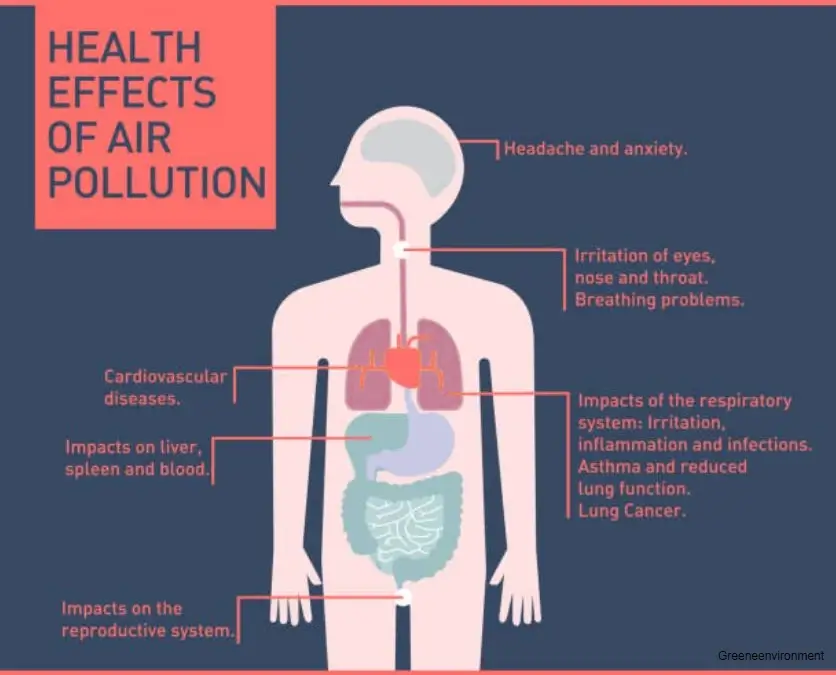Introduction: The Interdependence of Nature and Human Health: The relation between nature and human beings is such that both aspects are interconnected and have a great impact on each other. A clean environment is important in the lives of people; on the other hand, deciding how nature is disposed of affects people too. Beginning with the air we breathe, right to the food we eat, nature offers its necessities that are essential to the flow of every man’s life.
The concept of nature and human health helps establish ways to preserve both aspects, as they are interdependent. As individuals interact with natural areas, improvements in their physical and mental well-being occur. On the other hand, environmental degradation brings about different diseases such as respiratory diseases, mental stress, and contaminated food.
How The Natural Environment Influences Physical Health?

Clean Air and Respiratory Health:
To promote healthy lungs, taking fresh air is essential in the provision of good-quality air to the lungs. Some trees and plants play a natural role in the purification of air through removing all forms of pollutants while offering air, which is so vital in the life of any living being. However, several human activities, such as emissions from industries, vehicle emissions, and the cutting down of trees, have raised the levels of air pollution across the world.
First and foremost, contaminated air may cause respiratory disorders that range from asthma to bronchitis and infections of the lungs. The effects of high pollution in urban areas are similar to those, consequently causing breathing problems as well as long-term lung problems. This requires government and personal intervention in adopting cleaner sources of energy, afforestation, and placing measures to reduce the excessive emissions by industries.
In this aspect, the project involves the provision of clean water and good hygiene practices that include handwashing:
As is commonly known and expected, water as a resource is essential to human beings, serving various purposes such as drinking, preparing food, and cleaning. This increases the incidence of ailments like cholera, typhoid fever, and diarrhea, which are common ailments in many parts of the world today.
Economic and effective means of disposing of human and cattle waste, as well as access to clean water, significantly decrease the rates of infections within the country. Through the consideration of the above-discussed points of view, the government and other organizations should ensure safe water sources by averting industrial offshoots, agricultural chemicals, and plastic waste.
Nutrient-Rich Soil and Food Quality:
Customers cannot get quality health from food that they consume because the quality of the soil they use in farming is full of infection. Soil is one of the most important God’s creations that contains nutrients and minerals that are vital in the growth of plants and human food value.
They have also brought about negative impacts on the soil structures and qualities of foods produced there by the use of chemical fertilizers and pesticides. Their consumption through contaminated foods grown in such soils leads to ailments like food poisoning, allergies, and chronic disease, among others.
The Impact of Nature on Mental Well-Being

Green Spaces and Stress Reduction:
The effects of positively charged environments such as parks, forests, and gardens have been demonstrated to have a positive impact on the reduction of stress and anxiety. Cortisol is the stress hormone, and such natural settings reduce it to ensure the calmness of the body. Data from surveys indicate that people whose occupations such as walking, hiking, or even gardening have enhanced moods and /or enhanced cognitive abilities.
When people live in an environment containing low levels of greenness, they are likely to report more cases of depression and some other mental complications. Local authorities and urban designers should encourage the creation or establishment of more parking and recreational facilities to improve people’s quality of life. Some benefits of encouraging community gardens and rooftop gardens are that they can also lead to healthier surroundings.
The Role of Sunlight in Mental Health:
It fact by numerous sources that light has a direct influence on the state of mood and mental health. Natural lighting was indeed well known to make people relaxed and healthier due to the ever-increasing level of serotonin hormone that is likely to be produced at the site of contact with natural light. Another important aspect of sunlight’s impact is that it aids in the manufacture of vitamin D in the body, the vitamin that is vital in the function of the brain as well as in the entire body’s systems.
Insufficient exposure to the sun causes effects like seasonal affective disorder, whereby individuals experience depression and fatigue. The residents of such areas should go out in the daytime and try to use natural light in their houses, or go see a light therapist. The implication is that natural light in homes, schools, and workplaces should always be provided in order to support good mental health.
Nature Therapy and Emotional Stability:
Ecotherapy, or nature therapy, is another activity that uses the natural setting for psychological as well as emotional restoration. Among the activities that have establish to have therapeutic value are: forest bathing, wildlife observation, and outside meditation, which have a significant effect on anxiety, depression, and emotional distress. Staying connected with the natural environment is relaxing, enables an individual to reflect on the self, and the other hand, elevates happiness.
Indeed, it is now common to observe that many therapists prescribe nature therapy as a treatment to help patients with stress and trauma. Evaluating the benefits of such activity and the extent of natural environment appreciation, communities can enhance the state of physical and psychological health on a societal level.
Environmental Pollution and Its Effects on Human Health

Air Pollution and Chronic Diseases:
Pollution, especially in the air, is one of the major causes of diseases such as asthma, lung cancer, and cardiovascular diseases. Smoke from industries, automobiles, and the burning of fossil fuels lets out dangerous gases into the atmosphere.
Air pollution affects the immune system and makes it fragile and susceptible to infections common when one is expose to unfiltered polluted air on many occasions. It is also noteworthy that children and the elderly members of the population are the most susceptible to diseases connected with air pollution.
Water Contamination and Public Health Risks:
Use of contaminated water exposes individuals to various diseases and illnesses such as cholera, dysentery, and hepatitis, among others. Environmental pollution: industrial waste products, emission of wastes from agricultural activities, and the effect of plastics in water also cause water pollution.
This is because taking a bath with this water, or even drinking the water, can lead to infections and skin diseases as well as other related stomach ailments. In order to be able to protect the water supply, the government should legislate for watersheds and expand public hygiene amenities.
Toxic Waste and Long-Term Health Hazards:
The effects of waste effluents from the industries, hazardous wastes in landfills, and the effects of oil spills can have long-term impacts on health. Danlos syndrome and other diseases, such as cancer, birth defects, and disorders of the nervous system, occur due to hazardous chemicals. Littering, which is another way of disposing of waste, affects the surrounding environment in that it pollutes the soil and water, hence the health of human beings as well.
The risks of contaminated water, improper disposal of wastes, and excessive use of chemicals can be prevented by recycling, proper waste management, and other measures. There is therefore a need for the government agencies, as well as other environmental organizations, to ensure proper disposal, as well as the encouragement of the right measures towards the sustainable use of waste.
Conclusion:
As much as nature and human beings are intertwined, preserving the environment becomes a crucial factor in the longevity the health of a community. Food quality, safe drinking water, and good quality soil are paramount to body health, whereas properly designed open space and natural light are good for the emotions or mind. However, pollution, climate change, and urbanization contribute to such challenges, hence posing a high rate of health risks that affect the natural benefits.
FAQs:
1. In this case, there is a question that will be addressed: How does nature affect human mental health?
A: Nature helps to alleviate stress, improve mood, and enhance relaxation by decreasing cortisol content and increasing serotonin.
2. That point leads to asking another critical question: What are the health risks of environmental pollution?
A: Polluted air leads to respiratory diseases, contaminated water leads to different types of infections, and continuous exposure to toxic wastes leads to different types of illnesses.
3. In what ways can persons contribute to the protection of the environment for the improvement of their health?
A: In this case, individuals should embrace simple changes, including washing to avoid polluting the environment, taking shorter showers so that one can influence conserving water, use of organic foods to influence global diets, and supporting the planting of trees to one can encourage green spaces to enhance the general image of the environment.
4. This superb and simple question is the title of what turned out to be a fascinating
A: TED talk by Lynne Malionek, a clinical psychologist and an international speaker. Sunlight improves serotonin levels, fosters vitamin D synthesis, and helps to avoid seasonal affective disorder.
5. What makes one conclude that it is of vital significance to people’s well-being?
A: These are behind the justification why biodiversity offers medicinal resources where necessary, balances ecosystems, and prevents diseases.



